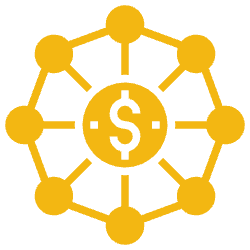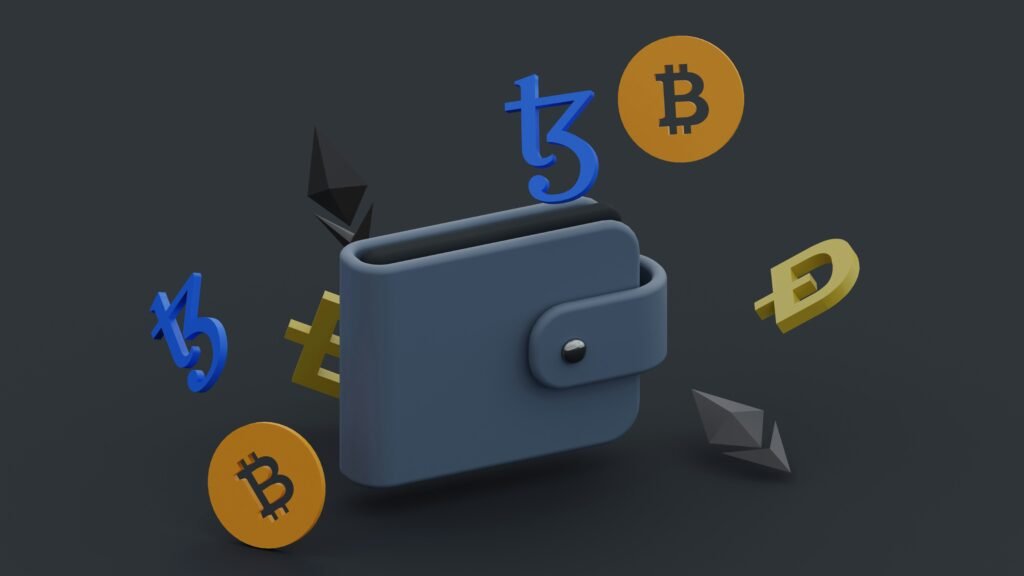Introduction
Blockchain is a buzzword that has been floating around for a while now, primarily associated with the rise of cryptocurrencies like Bitcoin and Ethereum. But what if I told you that blockchain’s potential goes way beyond digital currency? Yup, you heard me right! Blockchain technology is making waves across various industries, revolutionizing how we do business, manage data, and even vote. Let’s dive into this fascinating world and see how blockchain is transforming industries beyond cryptocurrency.
Understanding Blockchain
What is Blockchain?
Imagine a digital ledger that is not just in one place but spread across a network of computers. This ledger is immutable, meaning once something is recorded, it can’t be changed. That’s blockchain in a nutshell. It’s a decentralized system that ensures data integrity and security.
How Does Blockchain Work?
Blockchain operates on a network of nodes (computers). When a transaction is made, it’s broadcasted to this network. These nodes validate the transaction and then add it to a block. This block is then linked to the previous one, forming a chain. The beauty here is in the transparency and security; everyone in the network can see the transaction, but no one can alter it once it’s added.
Blockchain in Finance
Smart Contracts
In the financial sector, blockchain isn’t just about cryptocurrencies. One of its coolest applications is smart contracts. These are self-executing contracts with the terms directly written into code. Imagine buying a house and the contract automatically transfers ownership once the payment is made—no need for lawyers or middlemen. Neat, right?
Fraud Prevention
Fraud is a massive headache for financial institutions. Blockchain can help by providing a transparent and tamper-proof record of transactions. Since every transaction is recorded and verified by multiple nodes, it’s incredibly tough for fraudsters to pull a fast one.
Blockchain in Supply Chain Management
Transparency and Traceability
Ever wondered where your food comes from or how that fancy gadget made its way to you? Blockchain can provide end-to-end visibility in supply chains. Each step of the process is recorded on the blockchain, making it easy to trace the journey of a product from its origin to your hands.
Efficiency and Cost Reduction
Supply chains are notorious for being complex and costly. Blockchain can streamline these processes by reducing the need for intermediaries and paperwork. This not only cuts down costs but also speeds up transactions. It’s like hitting two birds with one stone.
Blockchain in Healthcare
Secure Medical Records
In the world of healthcare, patient data security is paramount. Blockchain offers a secure way to store medical records. Patients can control who has access to their data, and since the records are immutable, there’s no risk of tampering.
Streamlined Processes
From insurance claims to patient referrals, blockchain can streamline various healthcare processes. It can reduce administrative burdens and ensure that everyone has access to the same, up-to-date information. Imagine fewer forms to fill out and less waiting time—sounds like a dream, doesn’t it?
Blockchain in Real Estate
Simplifying Property Transactions
Buying or selling property can be a real hassle with all the paperwork and legal hoops to jump through. Blockchain can simplify these transactions by recording them on a transparent and secure ledger. This can make property transactions faster and cheaper.
Reducing Fraud
Real estate fraud is a significant issue, but blockchain can help here too. Since every transaction is recorded and can’t be altered, it’s much harder for fraudsters to fake documents or ownership details.
Blockchain in Voting Systems
Enhancing Security
Voting is crucial for democracy, but the process is often plagued by security issues. Blockchain can provide a secure and transparent way to conduct elections. Each vote can be recorded on the blockchain, making it nearly impossible to tamper with the results.
Increasing Accessibility
Blockchain can also make voting more accessible. Imagine being able to vote from your smartphone securely. This could increase voter turnout and make the process more inclusive.
Blockchain in Education
Credential Verification
Fake degrees are a real problem, but blockchain can help verify academic credentials. Universities can issue diplomas on the blockchain, and employers can easily verify their authenticity. This could make the job market a lot fairer.
Learning Management Systems
Blockchain can also enhance learning management systems by providing a secure way to track students’ progress and achievements. This can help educators personalize learning experiences and ensure that all data is accurate and up-to-date.
Challenges of Blockchain Adoption
Scalability Issues
Despite its potential, blockchain isn’t without challenges. One of the biggest hurdles is scalability. As the number of transactions increases, the blockchain can become slower and more cumbersome. Researchers are working on solutions, but it’s still a work in progress.
Regulatory Hurdles
Regulation is another significant challenge. Since blockchain operates on a decentralized network, it doesn’t fit neatly into existing regulatory frameworks. Governments and regulators are still figuring out how to manage this new technology.
The Future of Blockchain
Emerging Trends
Blockchain technology is continuously evolving. We’re seeing trends like decentralized finance (DeFi), non-fungible tokens (NFTs), and more. These innovations are pushing the boundaries of what’s possible with blockchain.
Potential Impact
The potential impact of blockchain is immense. It can transform industries, make processes more efficient, and provide unprecedented levels of security and transparency. We’re just scratching the surface of what this technology can do.
Conclusion
Blockchain is much more than a buzzword or a backbone for cryptocurrencies. Its applications span across various industries, offering innovative solutions to age-old problems. From finance to healthcare, real estate to education, blockchain is proving to be a game-changer. As we continue to explore its potential, one thing is clear—blockchain is here to stay and will continue to transform the way we live and work.
FAQs
Q1: What is the primary advantage of blockchain technology?
A1: The primary advantage of blockchain is its ability to provide secure, transparent, and tamper-proof records of transactions, which can be applied to various industries beyond cryptocurrency.
Q2: How does blockchain improve supply chain management?
A2: Blockchain improves supply chain management by offering transparency and traceability, reducing costs, and increasing efficiency by minimizing intermediaries and paperwork.
Q3: Can blockchain technology be used in voting systems?
A3: Yes, blockchain can enhance the security and accessibility of voting systems, making it nearly impossible to tamper with results and allowing people to vote securely from remote locations.
Q4: What are smart contracts and how do they work?
A4: Smart contracts are self-executing contracts with terms directly written into code. They automatically execute transactions when predefined conditions are met, eliminating the need for intermediaries.
Q5: What are the main challenges facing blockchain adoption?
A5: The main challenges include scalability issues, as the technology can become slower with increased transactions, and regulatory hurdles, as blockchain doesn’t fit neatly into existing frameworks.

